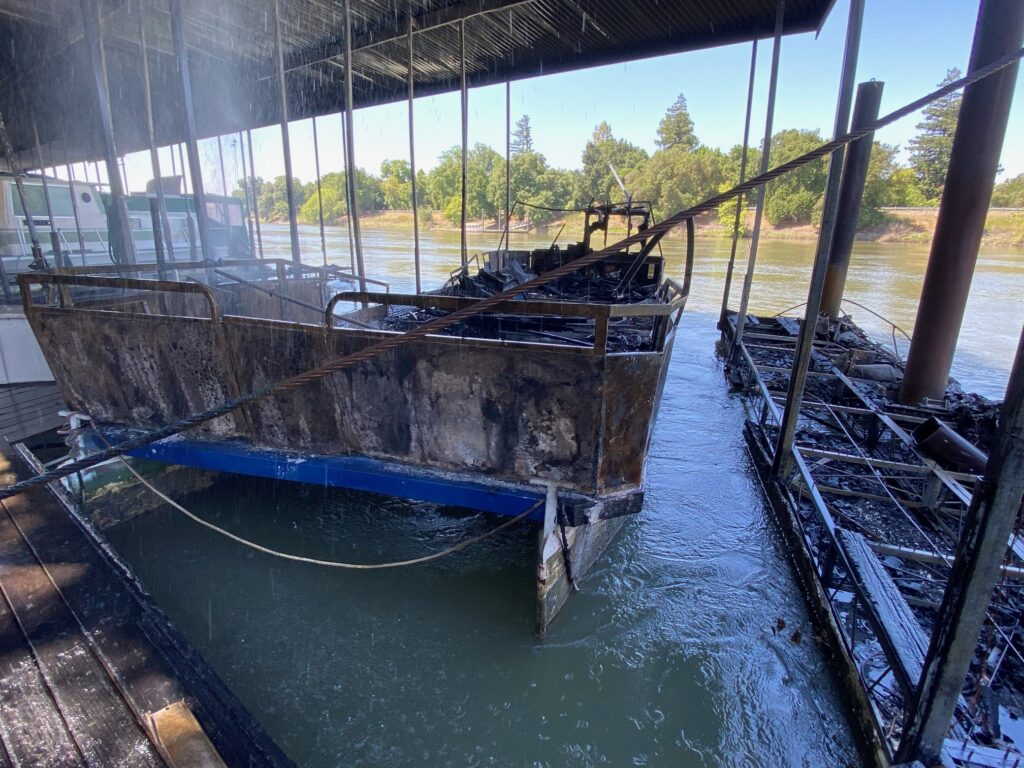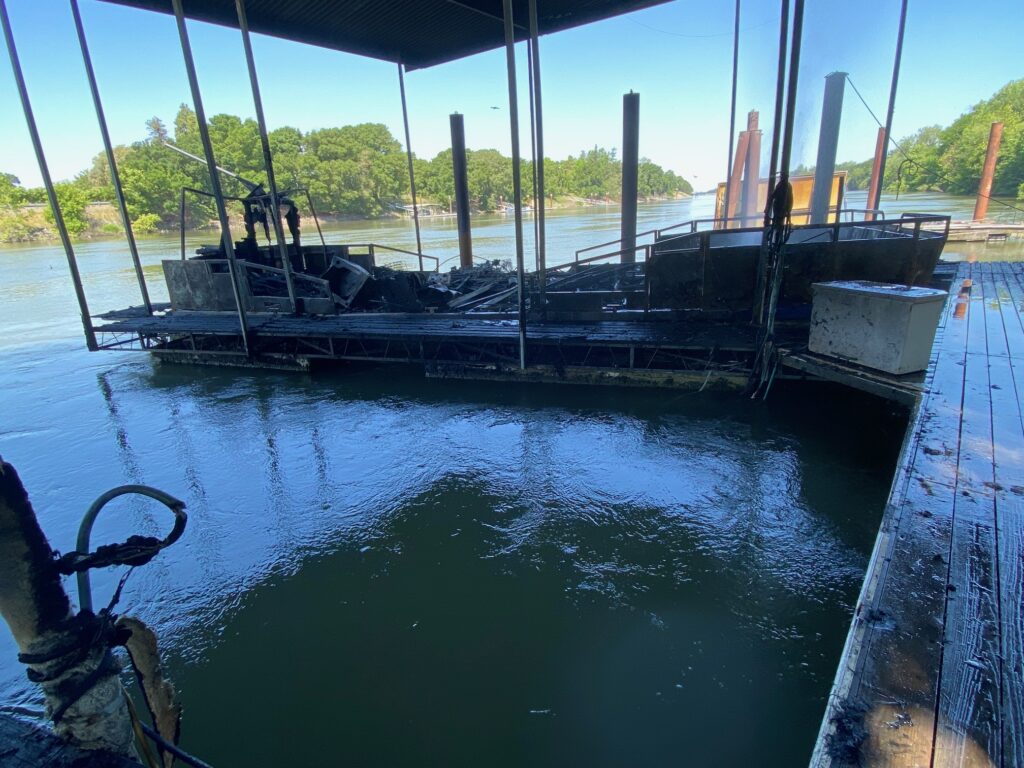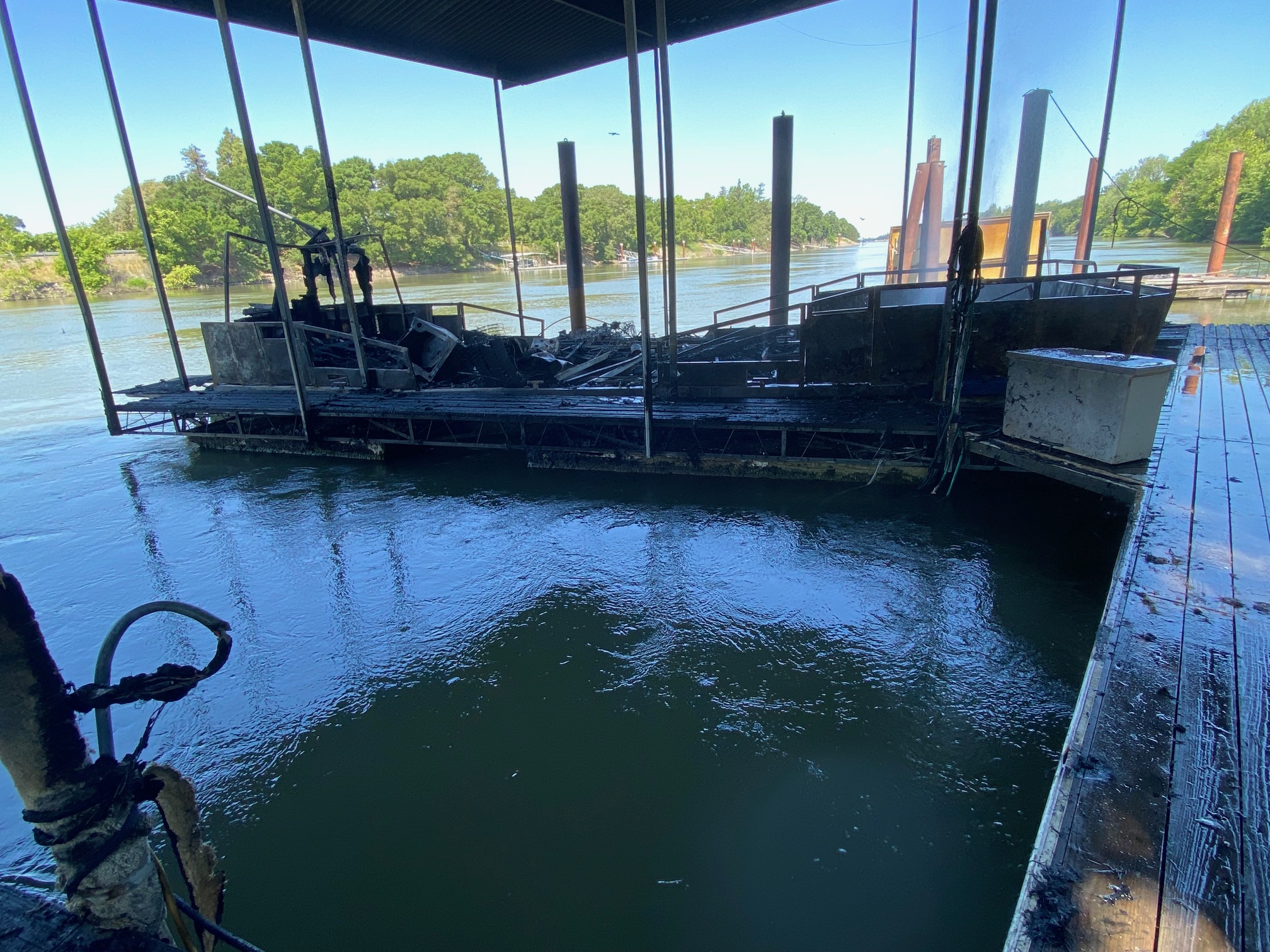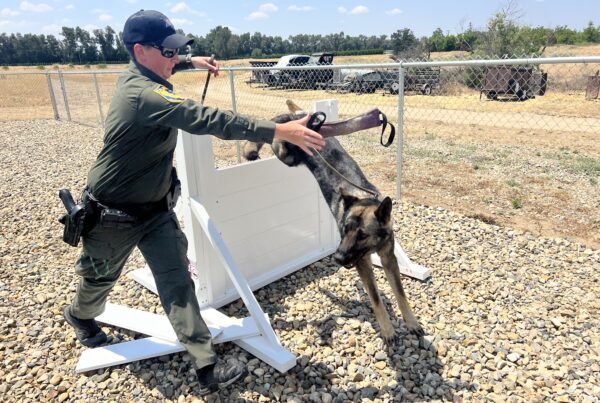Officers assigned to the Office of Spill Prevention and Response investigated an intentional and unintentional oil release into the state waters. Fortunately, the tell-tale rainbow sheen that indicates the presence of oil or another possibly harmful chemical spill was not observed at this fire scene.


California wildlife officers investigating chemical spills is incredibly important for several reasons:
- Protecting Wildlife: Chemical spills can have devastating effects on wildlife populations. They can contaminate water sources, soil, and vegetation, leading to various species’ death or severe health issues. Wildlife officers play a crucial role in assessing the impact of spills on local ecosystems, identifying affected wildlife, and initiating rescue and rehabilitation efforts to minimize harm.
- Conservation of Endangered Species: California is home to numerous endangered and threatened species, including the California condor, desert tortoise, and several salmon species. Chemical spills can pose a significant threat to these vulnerable populations. Wildlife officers’ investigations help identify the extent of the damage and enable targeted conservation measures to protect these species and their habitats.
- Environmental Protection: Chemical spills can pollute rivers, lakes, and coastal areas, causing harm to not only wildlife but also the broader environment. These spills can contaminate water supplies, disrupt aquatic ecosystems, and impact human health. Wildlife officers can collaborate with environmental agencies and experts to mitigate the immediate and long-term environmental impacts, including cleanup efforts and preventive measures by investigating chemical spills.
- Legal Enforcement: Wildlife officers are responsible for enforcing environmental laws and regulations. When a chemical spill occurs due to negligence or intentional wrongdoing, investigations by wildlife officers gather evidence and information necessary for legal action against the responsible parties. This ensures that those who harm the environment and wildlife face appropriate consequences, deterring future incidents.
- Public Safety: Chemical spills can threaten public health and safety. Hazardous substances entering water supplies or nearby residential areas can harm people’s health and well-being. Wildlife officers work closely with other agencies and local authorities to assess the potential risks, issue advisories, and coordinate emergency responses to protect wildlife and human populations.
Overall, the investigations conducted by California wildlife officers are essential for safeguarding wildlife, preserving ecosystems, maintaining environmental quality, upholding the law, and ensuring the well-being of both wildlife and human communities in the face of chemical spills.





